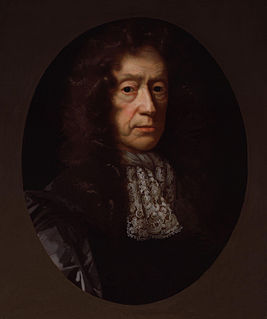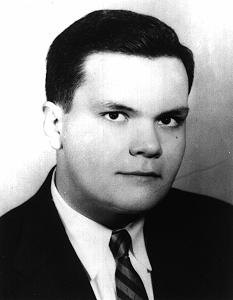A Quote by Edmund Waller
My joy, my grief, my hope, my love,
Did all within this circle move!
Related Quotes
So we see that even when Fortuna spins us downward, the wheel sometimes halts for a moment and we find ourselves in a good, small cycle within a larger bad cycle. The universe, of course, is based upon the principle of the circle within the circle. At the moment, I am in an inner circle. Of course, smaller circles within this circle are also possible.
Friends given by God in mercy and in love;
My counsellors, my comforters, and guides;
My joy in grief, my second bliss in joy;
Companions of my young desires; in doubt
My oracles; my wings in high pursuit.
Oh! I remember, and will ne'er forget
Our meeting spots, our chosen sacred hours;
Our burning words, that utter'd all the soul,
Our faces beaming with unearthly love;--
Sorrow with sorrow sighing, hope with hope
Exulting, heart embracing heart entire.
The difference between shallow happiness and a deep, sustaining joy is sorrow. Happiness lives where sorrow is not. When sorrow arrives, happiness dies. It can't stand pain. Joy, on the other hand, rises from sorrow and therefore can withstand all grief. Joy, by the grace of God, is the transfiguration of suffering into endurance, and of endurance into character, and of character into hope--and the hope that has become our joy does not (as happiness must for those who depend up on it) disappoint us.
Our species uses music and dance to express various feelings: love, joy, comfort, ceremony, knowledge, and friendship. And each one is distinct and widely recognized within cultures. Love songs cause us to move slowly and fluidly, for example, while songs of joy inspire us to dance in a full-body aerobic way.
Grief causes you to leave yourself. You step outside your narrow little pelt. And you can’t feel grief unless you’ve had love before it - grief is the final outcome of love, because it’s love lost. […] It’s the cycle of love completed: to love, to lose, to feel grief, to leave, and then to love again. Grief is the awareness that you will have to be alone, and there is nothing beyond that because being alone is the ultimate final destiny of each individual living creature. That’s what death is, the great loneliness.
While Christianity was able to agree with pagan writers that inordinate attachment to earthly goods can lead to unnecessary pain and grief, it also taught that the answer to this was not to love things less but to love God more than anything else. Only when our greatest love is God, a love that we cannot lose even in death, can we face all things with peace. Grief was not to be eliminated but seasoned and buoyed up with love and hope.
If a man has no worries about himself at all for the sake of love toward God and the working of good deeds, knowing that God is taking care of him, this is a true and wise hope. But if a man takes care of his own business and turns to God in prayer only when misfortunes come upon him which are beyond his power, and then he begins to hope in God, such a hope is vain and false. A true hope seeks only the Kingdom of God... the heart can have no peace until it obtains such a hope. This hope pacifies the heart and produces joy within it.






































